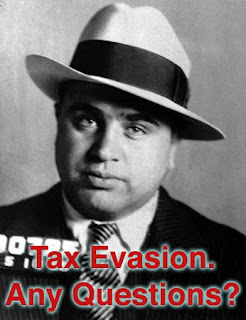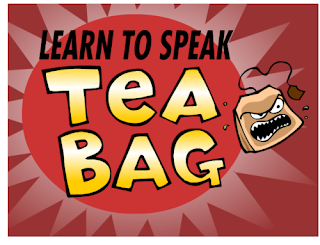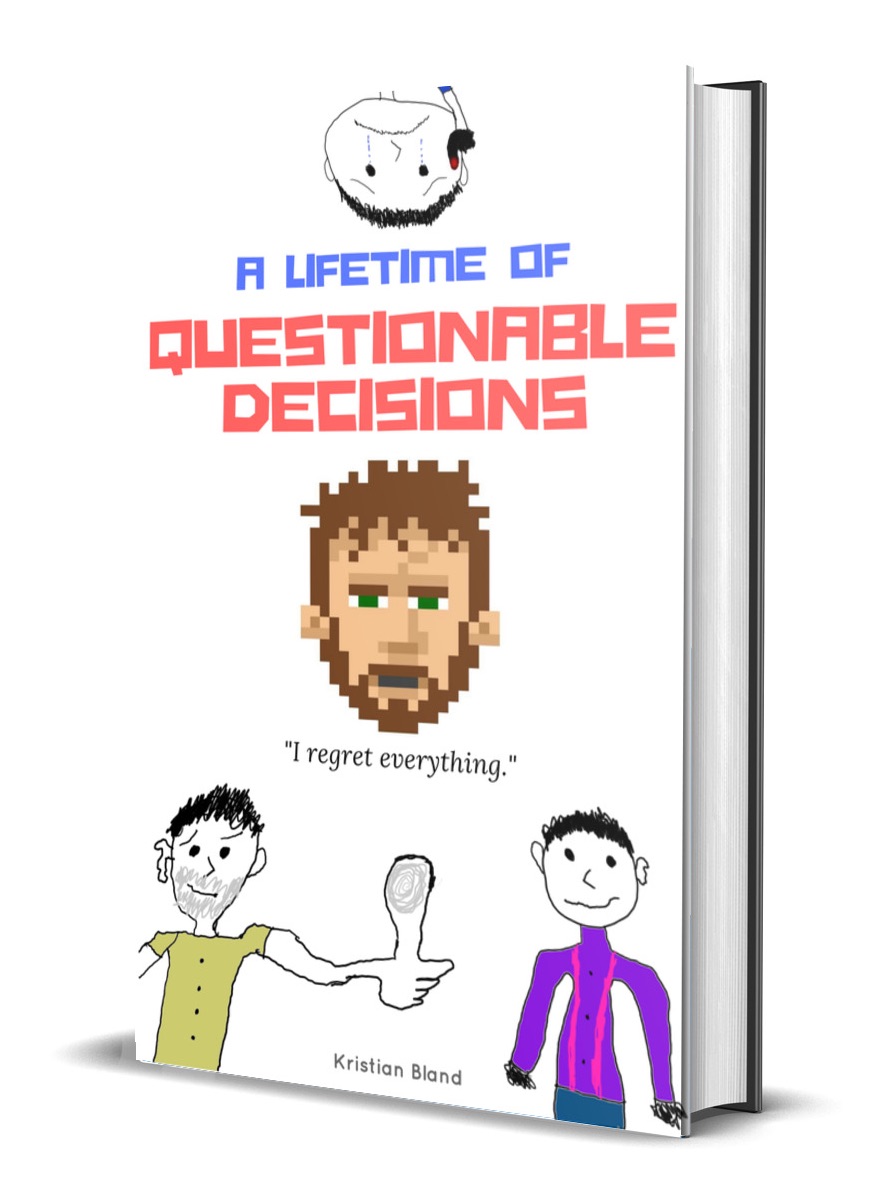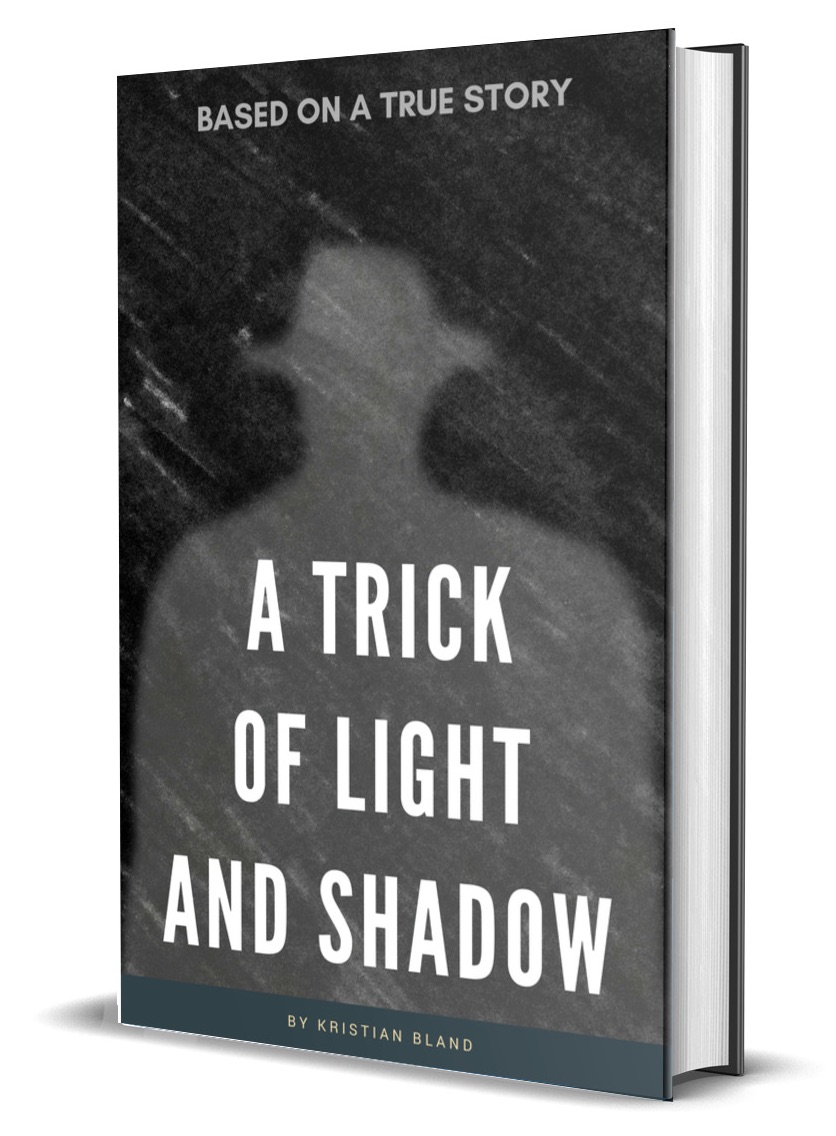Posted on March 30, 2010
Tea Parties Are For Little Girls
 After enjoying a recent Facebook-powered mini-debate over the Tea Party movement, I decided to write up a short and jagged little rehash of stuff I’ve already said. It should come as no surprise to regular visitors to my little corner of the Internet that I loathe the Tea Party movement, but what is probably less obvious is the fact that I don’t actually hate the teabaggers themselves. Not really. (Yes, it’s a derogatory term. No, I’m not using it like you think I’m using it – but more on that in a minute.) The problem with the Tea Party movement isn’t that it’s a bad idea. As anyone who has ever spoken with me on more than a cursory level knows, I’m all for protesting injustice, however one defines it. However, I’m in favor of true protesting, where consequence and reward are balanced on the razor-thin line of risk, where those so inclined to rage against the machine actually possess the courage of their convictions. Mailing tea bags to congressmen isn’t exactly a risky sort of behavior, and neither is gathering together with like-minded folk to stand around, chanting battle cries and waving semi-clever, homemade signs in the air. Those sorts of things may be part of an overall awareness campaign, but as a form of protest that expects real change, it is both anemic and absurd.
After enjoying a recent Facebook-powered mini-debate over the Tea Party movement, I decided to write up a short and jagged little rehash of stuff I’ve already said. It should come as no surprise to regular visitors to my little corner of the Internet that I loathe the Tea Party movement, but what is probably less obvious is the fact that I don’t actually hate the teabaggers themselves. Not really. (Yes, it’s a derogatory term. No, I’m not using it like you think I’m using it – but more on that in a minute.) The problem with the Tea Party movement isn’t that it’s a bad idea. As anyone who has ever spoken with me on more than a cursory level knows, I’m all for protesting injustice, however one defines it. However, I’m in favor of true protesting, where consequence and reward are balanced on the razor-thin line of risk, where those so inclined to rage against the machine actually possess the courage of their convictions. Mailing tea bags to congressmen isn’t exactly a risky sort of behavior, and neither is gathering together with like-minded folk to stand around, chanting battle cries and waving semi-clever, homemade signs in the air. Those sorts of things may be part of an overall awareness campaign, but as a form of protest that expects real change, it is both anemic and absurd.
Actual protests come in the form of simply refusing to allow or engage in the activities with which the protesters feel aggrieved. When American colonists collectively decided that taxation without representation was unjust and wrong, they didn’t mail tea bags back to King George. They didn’t stand on the eastern seaboard to shout across the Atlantic Ocean and wave picket signs at the oncoming frigates of the British Royal Navy. What they did do, however, was refuse to honor the Tea Act. The Boston Tea party was as symbolic as it was practical. By dumping oodles of tea into the chilly waters of Boston harbor, the colonists triggered the British Parliament to pass the Intolerable Acts, which closed the port until the East India Trading Company had been repaid for their three shiploads of lost tea. The acts also installed direct British control of the Massachusetts colony, provided British officials in America with a legal escape from the colonies if they found themselves on the wrong side of the law, expanded Britain’s capability to house troops in the colonies, and expanded the borders of Canada. In response, the colonists did not merely scurry home to begin a frantic and furious campaign of angry tea bag mailing and furious sign holding. Rather, they decided to form the First Continental Congress, which eventually led to the American Revolution. Granted, this didn’t happen overnight. In fact, it took time to get people on board, and perhaps this is the role that current Tea Party members believe they are playing – but they’re not. They aren’t anything like those early Americans, because the tea-mailing and sign-waggling todies we have crying for revolution today lack the courage displayed by their ancestors. Failing to truly risk anything in hopes of righting the injustices they so desperately claim to want to rectify removes the self-perceived honor from the movement, and places its members firmly on the sheep side of the divide between predator and prey – and its leaders are the wolves.
This is not to say that the movement’s goals are unattainable, but merely to point out the differences between the American revolutionaries and today’s teabaggers. The Tea Party movement could actually achieve its marketed goals through one swift and simple collective display of revolt by its members, if only they had the courage to do so: they could simply refuse to pay their taxes. In doing this en masse, the government would have little choice but to respond. And, while Congressional passage of some modern equivalent of the Intolerable Acts is not outside the realm of possibility, it isn’t very likely. In truth, the most probable response would be the repealment of the recently passed Health Care Reform – but not  before quite a few Tea Party protesters found themselves sacrificing for the cause. Still, a few fines and a little jail time are far less damaging for modern day revolutionaries than the threat of execution on account of sedition was for members of the real Tea Party. Sadly, however, you won’t find the same level of commitment from today’s wannabe revolutionaries. No, they are content to make a stand by not making a stand at all. They will hold signs and banners and follow the talking points of TV pundits who nourish their fears as the teabaggers eagerly suckle their milk of deception directly from the glass teat. Then, even as they stage rallies and march upon Congress and their lunatic fringe turns violent, they will quietly acquiesce and pay their taxes. After all, it’s all well and good to stand up for what you believe in via a safe and controlled party protest – but risking their financial security and future stability for the sake of repealing ‘evil’ and ‘socialist’ health care reform? That’s taking things a little too far – and besides, they have bills to pay and mortgages to meet and obligations to honor, just like everyone else. Who in their right mind would lay everything on the line in hope of change, right? A true revolutionary would, that’s who…
before quite a few Tea Party protesters found themselves sacrificing for the cause. Still, a few fines and a little jail time are far less damaging for modern day revolutionaries than the threat of execution on account of sedition was for members of the real Tea Party. Sadly, however, you won’t find the same level of commitment from today’s wannabe revolutionaries. No, they are content to make a stand by not making a stand at all. They will hold signs and banners and follow the talking points of TV pundits who nourish their fears as the teabaggers eagerly suckle their milk of deception directly from the glass teat. Then, even as they stage rallies and march upon Congress and their lunatic fringe turns violent, they will quietly acquiesce and pay their taxes. After all, it’s all well and good to stand up for what you believe in via a safe and controlled party protest – but risking their financial security and future stability for the sake of repealing ‘evil’ and ‘socialist’ health care reform? That’s taking things a little too far – and besides, they have bills to pay and mortgages to meet and obligations to honor, just like everyone else. Who in their right mind would lay everything on the line in hope of change, right? A true revolutionary would, that’s who…
So the Tea Party is what it is and, although started with good intentions, it has since been usurped by the very same forces the teabaggers claim to despise. It all goes back to the grand illusion of the American Dream: that hopeless bit of deception that motivates the majority of Americans to vote against their own interests and favor the 20% of the populace who control 84% of the nation’s wealth. It is this 20% who have bought the media, tucked the pundits into their pockets and are shoveling propaganda into the open mouths of the remaining 80% of us left to fight over the scraps. Most American citizens are struggling to claim their piece of the 15 or 16% that the wealthy have left, pitting everyone against each other in a grim and terrible race to merely survive. The trick of the wealthy, of course, has been to lead the majority of us down the garden path of not only believing that we can one day join the elite, but that many of us are already in their ranks. We’re not. When the current leaders of the Tea Party movement start going on about the middle class, try to understand that they are not talking about you. They’re not referring to the blue collar workers, the teachers, the retail employees, or the average American work-a-day cubicle slaves. They’re not even talking about the managers. No, they’re talking about the top 19% of the people who make up the American aristocracy, the upper middle class who control 50% of the nation’s wealth, while the top 1% dominate another 34%. In other words, they’re talking to people who aren’t you, but who they have convinced you that you are. If this sounds confusing, think of it like this: the people who stand to lose the most from certain governmental policies (Group A) have managed to keep the vast majority of the people who would benefit the most (Group B) from voting in favor of those same policies. The people in Group A (the wealthy) want the folks in Group B (that’s probably you and most everyone you know) to believe that they are, in fact, in Group A – that they are rich, that everyone they know is rich, and that the only poor people in the country are the ones looting grocery stores and smoking crack on the evening news.
The truth is, you are probably poor and just don’t know it. Certainly, the teabaggers think they’re rich. They think the Tea Party message is meant for them – and they’re right, just not in the way they think. The message is meant to deceive the majority of its followers through ego stroking and massaging their own sense of self-worth. No one wants to admit to being poor and, in today’s consumer-driven society where one’s value is determined by their buying power, it’s especially true that  no one wants to be thought of as poor. After all, poor people – by the rhetoric of elitist propaganda – are the loathsome scum of society: the deadbeats, the ones looking for a handout who do nothing to contribute to society. However, what leaders like Glenn Beck and Rush Limbaugh aren’t telling the people is that they see their very audience as belonging to this lower-tier. To the rich and powerful – to the top 20% of Americans – everyone below them are plebeian. We, the majority of American citizens, are seen by the truly wealthy as nothing more than peasants, as the poor working stiffs who toil our lives away in the service of our betters. We exist to help the rich get richer, to keep ourselves poor and in debt, and to never question the system. Or, if the air in the zeitgeist turns and the public begins to get the feeling that something is wrong, out of balance and unjust, then the powerful take those feelings of animosity and discontent and turn them back on the people themselves. They take the gun of the media and aim it into the crowd, firing off deceptive rhetoric intended to redirect the people’s anger back onto themselves, convincing them to vote against their own interests.
no one wants to be thought of as poor. After all, poor people – by the rhetoric of elitist propaganda – are the loathsome scum of society: the deadbeats, the ones looking for a handout who do nothing to contribute to society. However, what leaders like Glenn Beck and Rush Limbaugh aren’t telling the people is that they see their very audience as belonging to this lower-tier. To the rich and powerful – to the top 20% of Americans – everyone below them are plebeian. We, the majority of American citizens, are seen by the truly wealthy as nothing more than peasants, as the poor working stiffs who toil our lives away in the service of our betters. We exist to help the rich get richer, to keep ourselves poor and in debt, and to never question the system. Or, if the air in the zeitgeist turns and the public begins to get the feeling that something is wrong, out of balance and unjust, then the powerful take those feelings of animosity and discontent and turn them back on the people themselves. They take the gun of the media and aim it into the crowd, firing off deceptive rhetoric intended to redirect the people’s anger back onto themselves, convincing them to vote against their own interests.
And this, I am afraid, is why I refer to Tea Party members as teabaggers. I’m not intending to evoke the sex act made infamous by a million fratboys playing Halo, but I am attempting to get a point across. Sending tea bags to Congress is not an effective form protest, because the lack of risk carries no significance. Teabaggers ranting on their Facebook pages accomplish nothing because such things demand no sacrifice or commitment, other than simply being angry. Going on to claim a connection to a historic event like the Boston Tea Party – an act of defiance that posed a true threat and real risk to its participants – while they do nothing that would impact their own security and happiness is offensive to those who study history, and who hold reverence for those noble early Americans who did risk it all so that we might have a better nation. I call them teabaggers because they have allowed themselves to be led by people and organizations who wish to exploit the public, rather than seek out their own answers through independent study and critical examination of the truth. The teabaggers have willingly participated in their own ignorance by allowing others to think for them, even as they believe themselves fiercely independent. They have surrendered control of their lives to the whims of the top 20% – and they’re happy about it. They’re thrilled. They, after all, are middle class. They’re in that top 20%, right? Right? Right?!
Wrong. Eighty percent of the populace is an overwhelming majority – and this is a democratic republic, after all. If people were truly voting in their own interests, then there would have been no tax-funded bailout of a dishonest and corrupt banking system, no Katrina debacle where the poor were left to die alone, and no extension of the American Empire in the middle east. There would be no outsourcing of our jobs, no union busting, no sub-prime mortgage deferments, no mass layoffs and no abuses of usury law. No, if the misled 80% of the populace were actually voting  for what’s best for them rather than gleefully accepting the hideous lies of the pundits and the party leaders, then there would be celebrations whenever new governmental programs and institutions that actively work to protect the health, security and well-being of the poor in this country were put into place, because these sorts of redistributions of wealth are designed to actually help those less-fortunate citizens who are forced to contend against each other for a paltry 15% of the nation’s wealth. You know, 80% of us. You. Me. Almost everyone. The vast majority of Americans should be thrilled when new governmental programs are introduced to help those in need, but they aren’t. Instead, we have senior citizens surviving into old age thanks to Medicare who, rather than praising government’s involvement in their lives, are instead duped into protesting against ‘socialized’ health care. We have people one paycheck away from abject poverty who cry for deregulation and the privatization of everything. We have a nation confused by the cognitive dissonance that comes from being told one thing is true when, on some level, we know it is not. We have, in other words, the Tea Party movement. Ain’t life grand?
for what’s best for them rather than gleefully accepting the hideous lies of the pundits and the party leaders, then there would be celebrations whenever new governmental programs and institutions that actively work to protect the health, security and well-being of the poor in this country were put into place, because these sorts of redistributions of wealth are designed to actually help those less-fortunate citizens who are forced to contend against each other for a paltry 15% of the nation’s wealth. You know, 80% of us. You. Me. Almost everyone. The vast majority of Americans should be thrilled when new governmental programs are introduced to help those in need, but they aren’t. Instead, we have senior citizens surviving into old age thanks to Medicare who, rather than praising government’s involvement in their lives, are instead duped into protesting against ‘socialized’ health care. We have people one paycheck away from abject poverty who cry for deregulation and the privatization of everything. We have a nation confused by the cognitive dissonance that comes from being told one thing is true when, on some level, we know it is not. We have, in other words, the Tea Party movement. Ain’t life grand?









“It all goes back to the grand illusion of the American Dream: that hopeless bit of deception that motivates the majority of Americans to vote against their own interests and favor the 20% of the populace who control 84% of the nation’s wealth. It is this 20% who have bought the media, tucked the pundits into their pockets and are shoveling propaganda into the open mouths of the remaining 80% of us left to fight over the scraps. Most American citizens are struggling to claim their piece of the 15 or 16% that the wealthy have left, pitting everyone against each other in a grim and terrible race to merely survive.”
Oh, amen, amen. I’ve never seen it said better.
This is the best thing I’ve read all day. Thanks for this.
Thanks! I’m glad you enjoyed it. I’ve plenty more angry rants scattered around the site, if you want to poke around to find more.
I tend to climb on my soapbox a little too often, I think…
You are amazing.
Great site you have created. I have found this url while seeking google and bing and now I have to state time good spent on google.
I always used to read paragraph in news papers but
now as I am a user of internet therefore from now I
am using net for posts, thanks to web.